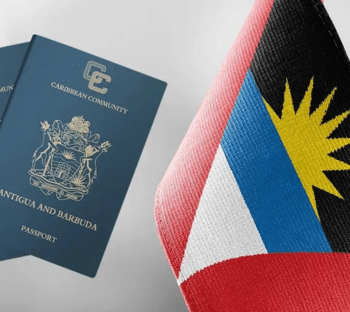Caribbean citizenship-by-investment (CBI) programs are investment pathways to citizenship. They typically include the real estate investment option, which requires you to buy a house or a share in a CBI country’s real estate development project, making sure to meet the required investment thresholds and investing only in government-approved projects, to become a citizen of that country.
While that may seem simple, the CBI due diligence process is rigorous. Despite the complexity, however, the entire CBI application and approval timeframe is relatively short.
In this article, we debunk citizenship-by-investment myths, countering them with Caribbean second passport facts. Through our CBI Caribbean facts vs fiction discussion, we hope to clear up investment immigration myths that may lead to misguided expectations, doubts, and unanswered questions.
Myth #1: All Caribbean citizenship-by-investment programs are the same.
Caribbean citizenship-by-investment programs may be similar, but they are not the same.
In the Caribbean, five territories or states stand out for their CBI programs. These are:
- Antigua and Barbuda
- St. Kitts and Nevis
- St. Lucia
- Dominica
- Grenada
All these countries’ CBI programs offer the real estate investment pathway. However, their individual programs are not identical.
First, they have different real estate investment thresholds. The real estate pathway of the Dominica investment citizenship program requires a minimum investment of $200,000, while Grenada citizenship-by-investment has a minimum investment requirement of $270,000. The St. Kitts and Nevis citizenship program, meanwhile, requires a minimum property investment of $325,000. St. Lucia and Antigua and Barbuda share the same investment threshold of $300,000.
Additionally, Caribbean passport via investment programs (as of right now) generally do not require temporary or permanent physical residency before, during, or after citizenship application. However, the Antigua and Barbuda citizenship-by-investment program is an exception because CBI citizens must stay in the country for at least five days within the first five years of citizenship to establish Caribbean citizenship legitimacy. Failure to fulfill this and other citizenship-for-life conditions can lead to the forfeiture of their passport and status as Antigua and Barbuda citizens.
Myth #2: You lose your original nationality.
No, you do not lose your original nationality just because you are granted a Caribbean passport through a citizenship-by-investment program. Caribbean countries with a CBI program will allow you to retain your original nationality, as they permit multiple (dual, triple, or more) citizenships.
Is there a risk of losing your original citizenship if your second citizenship application at a Caribbean CBI country gets approved? Yes, there is.
Here’s the absolute Caribbean dual citizenship truth. The risk of losing your original nationality will never come from the Caribbean citizenship-for-investment countries. It’s only a possibility if you are originally a national or citizen of a country that forbids dual citizenship. Such countries include:
- Japan
- Saudi Arabia
- Singapore
- China
- Monaco
- Malaysia
- Brunei
- Indonesia
What will happen if you’re a national of a country that prohibits dual citizenship and you become a citizen of a Caribbean country through CBI? You can lose your original nationality (and face other sanctions) if your original country’s government discovers your dual-citizen status.
Myth #3: The CBI application process is too slow.
No, the CBI application process timeline is relatively short. Half a year may be all it takes to get a decision on your citizenship-by-investment application.
The CBI due diligence process requires rigorous work and attention to detail, which is why CBI boards usually hire third-party background checkers and record verification agencies. However, the streamlined CBI application workflow means applicants who are above board in their declarations and have complete documents can expect to have results within six months.
Myth #4: It’s only for wealthy Americans.
The Caribbean citizenship-by-investment program is for everyone, not just for wealthy Americans. As earlier mentioned, you only need to make between $200,000 and $325,000 in offshore property investments (add application, due diligence, and passport fees) to apply for Caribbean citizenship using the CBI route.
You don’t have to be wealthy to afford these. You just need to have sufficient funds to finance your application and real estate investment. CBI is, therefore, perfect for high-income individuals and retirees.
Moreover, while CBI programs are available to everyone, there are exceptions. CBI countries may restrict or automatically reject applications from certain nationalities.
Myth #5: You can DIY your citizenship-by-investment application.
No, you cannot directly apply to a country’s CBI board or committee. You must submit your application through an authorized or accredited citizenship-by-investment agent like Citizens International.
This is actually a good thing, as it ensures you will have professional guidance, can be apprised of Caribbean CBI legal facts, and can avoid potential pitfalls and missteps that may delay or even jeopardize your citizenship-by-investment application.
Your CBI agent can also help clarify the CBI tax misconception about the Caribbean, specifically, that Caribbean citizenship is a way to evade taxes. It’s not.
Antigua and Barbuda, as well as St. Kitts and Nevis, do not impose personal income taxes. Grenada and St. Lucia do not tax foreign income. Dominica levies an income tax on residents’ worldwide income (earned in Dominica and abroad), but citizens who live overseas are exempt. All these tax breaks or benefits, however, do not negate or excuse you from your tax liabilities in your home country.
CBI Caribbean Facts vs. Fiction
Don’t let citizenship-by-investment myths stop you from applying for a second passport through a Caribbean CBI program. Understand these Caribbean second passport facts:
- Caribbean citizenship-by-investment programs have similarities, but they’re not identical.
- CBI programs in the Caribbean will not require you to surrender your original nationality or citizenship.
- The CBI application process is relatively fast: typically, it takes four to six months, but it takes six to eight months for St. Lucia.
- CBI programs are open to anyone who meets the minimum investment thresholds and does not come from a restricted country.
- You need a licensed agent like Citizens International. We will guide you through the process and submit your CBI application to the relevant CBI committee or board on your behalf.
If you’re ready to start your CBI application process, contact us.


